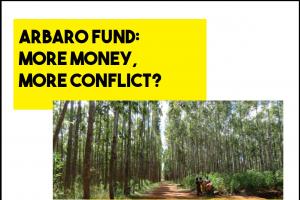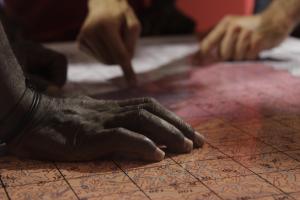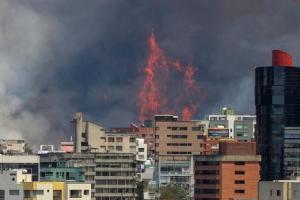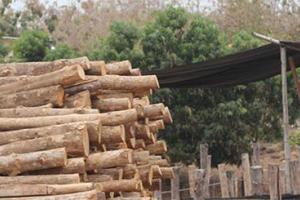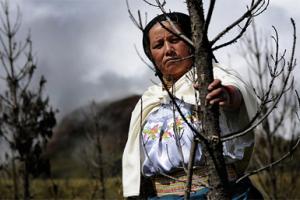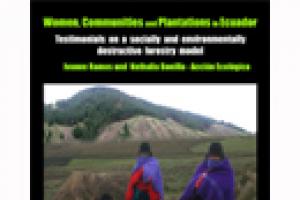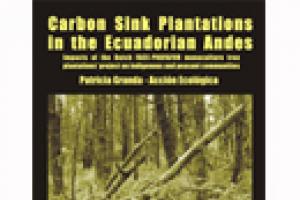Timber
Large-scale, intensively-managed and even-aged tree monocultures for timber production have been expanding onto communities’ fertile lands. They have destroyed forests and grasslands, especially in Latin America, Asia, and East and Southern Africa. The species used are exotic and fast-growing. They include varieties of eucalyptus, pine and teak trees.
Company plans 75,000 hectare expansion of Industrial Tree Plantations in Seven Countries in the Global South: Sierra Leone, Ghana, Uganda, Ethiopia, Peru, Ecuador and Paraguay. Download the leafelt to know more about the company and why communities should be alert.
The expansion of oil palm and logging in Wimbí is a fact. And in both cases, the protagonist is the same: the land trafficker who allowed the palm company, Energy & Palma, to enter. This new cycle of dispossession threatens the culture and survival of the community.
Certification schemes for tree plantations initially generated many expectations, promising a true transformation. Yet after all these years, we can definitely conclude that what the RSPO and FSC also have in common is that they will not meet those expectations.
Since the native vegetation that surrounded Quito was destroyed to make way for eucalyptus and pine plantations, the forest fires that the city faces year after year have been intensifying.
Teak plantations in Ecuador are not intended for domestic consumption. All of the teak is exported. There are very few economic benefits for the areas where teak is produced, due to the small amount of labour it requires, producers' non-existent social investment, and the loss of food sovereignty and water scarcity that this industry causes.
